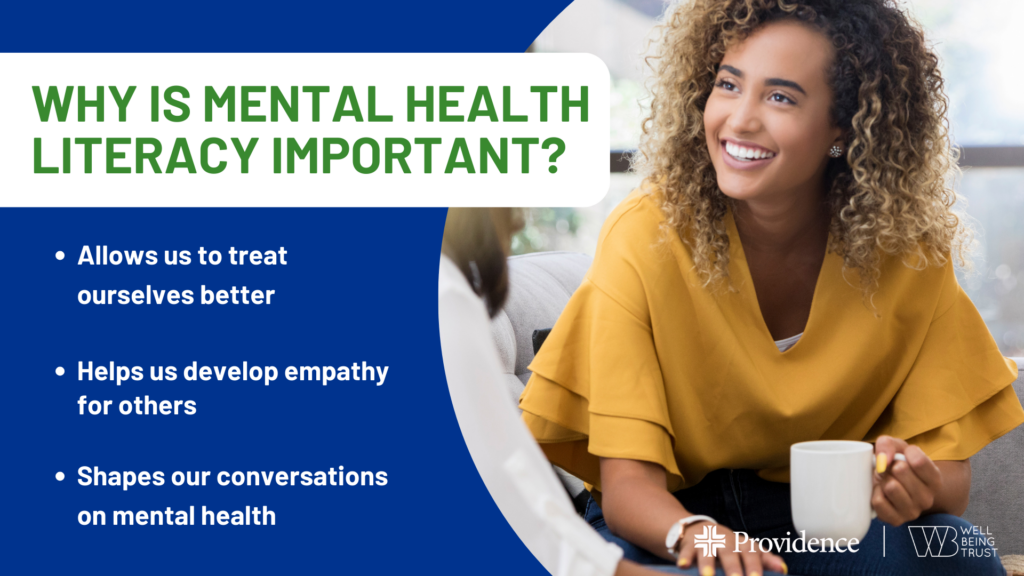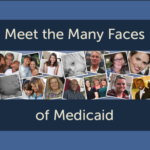There’s never been greater demand for increased access to mental health care and the reduction of its stigma. Both are required to improve our collective mental health, but how do we open avenues for seeking care and support compassionately and constructively?
In seeking formal mental health care from a professional, or support from a trusted friend or relative, there can be communication gaps in someone’s expression of what they’re experiencing, what they need, how someone can help, and where to find resources. This is where mental health literacy comes into play.
What is Mental Health Literacy?
Mental health literacy is defined as “knowledge and beliefs about mental disorders which aid their recognition, management or prevention”. This can include awareness of:
-
- Symptoms of mental health disorders like anxiety and depression
-
- Risk factors and causes for mental health disorders
-
- What self-help and clinical resources are available
-
- How to seek mental health information
-
- Attitudes which facilitate recognition and appropriate help-seeking
Understandably, we often associate literacy with reading comprehension. In the mental health and greater health context, literacy covers much more ground while also creating an opportunity for the following:
Mental Health Literacy can allow us to treat ourselves better
During personal rough patches, it can be easy to get discouraged about how we feel and how to fix it, especially if you live in a community with insufficient mental health support. Mental health literacy doesn’t shy away from hardship. Rather, it opens the channel of self-compassion by acknowledging informal feelings or more formal symptoms, as well as the potential circumstances that cause them.
This acknowledgement can be the catalyst to seeking care, which is also part of mental health literacy. Knowing what’s in your area, and who can help you, can be the difference in receiving care. This is incredibly important, as up to 70% of individuals who need mental health treatment fail to access the services they need.
Mental Health Literacy can help us support others who are struggling
Mental health literacy isn’t only useful for those experiencing a mental health disorder or issue. It can be just as impactful in assisting someone in need of care or support. Understanding mental health can make a notable difference in reaching out to someone you think might be struggling, or if someone comes to you as a trusted peer.
The COVID-19 pandemic is a prime example of a situation that impacted everyone’s mental health in different ways. While some may have been less impacted than others, it’s the awareness of these different levels of impact that might have influenced the type of support provided or received. This empathy plays a key role in mental health literacy.
Mental Health Literacy can shape our conversations on mental health
The stories of those we don’t know, or what we see in media, can have a negative impact on mental health stigma if literacy is lacking. In depictions of mental health focused stories, terms like “crazy” or “psychotic” are damaging blanket terms that disregard the nuances of mental health conditions and depersonalize the individual experiencing a struggle. It’s also damaging to generalize characteristics as disorders (i.e. calling someone “bipolar” if they express anger or “OCD” if they’re being meticulous).
Mental health literacy allows us to keep the focus on the person first and their experiences second. Misused terminology maintains the barrier of stigma that some who need care can’t overcome. Mental health literacy can break down that barrier.
———————–
Mental health literacy is necessary to better treat ourselves and others. The more we amplify its importance, the more likely individuals who need mental health care or support will be ready to receive it.
Interested in online mental health resources? Check out our resource list.
To learn more about mental health terminology, check out this video from Psych Hub and their other videos on mental health.
If you or someone you know is struggling or in crisis, help is available. Call or text 988 or chat 988lifeline.org
The information on this website is not intended to be medical advice. Medical advice can only be provided by your personal health care provider.






